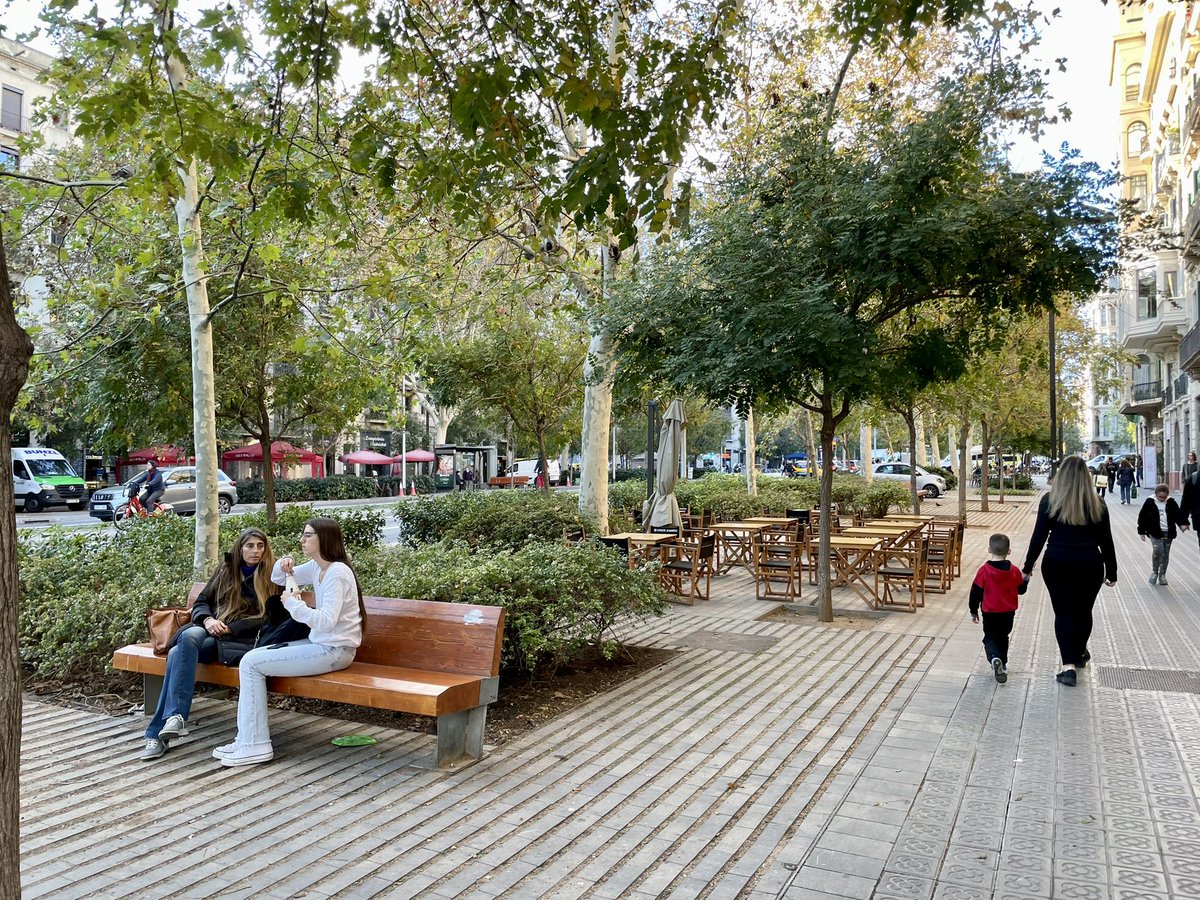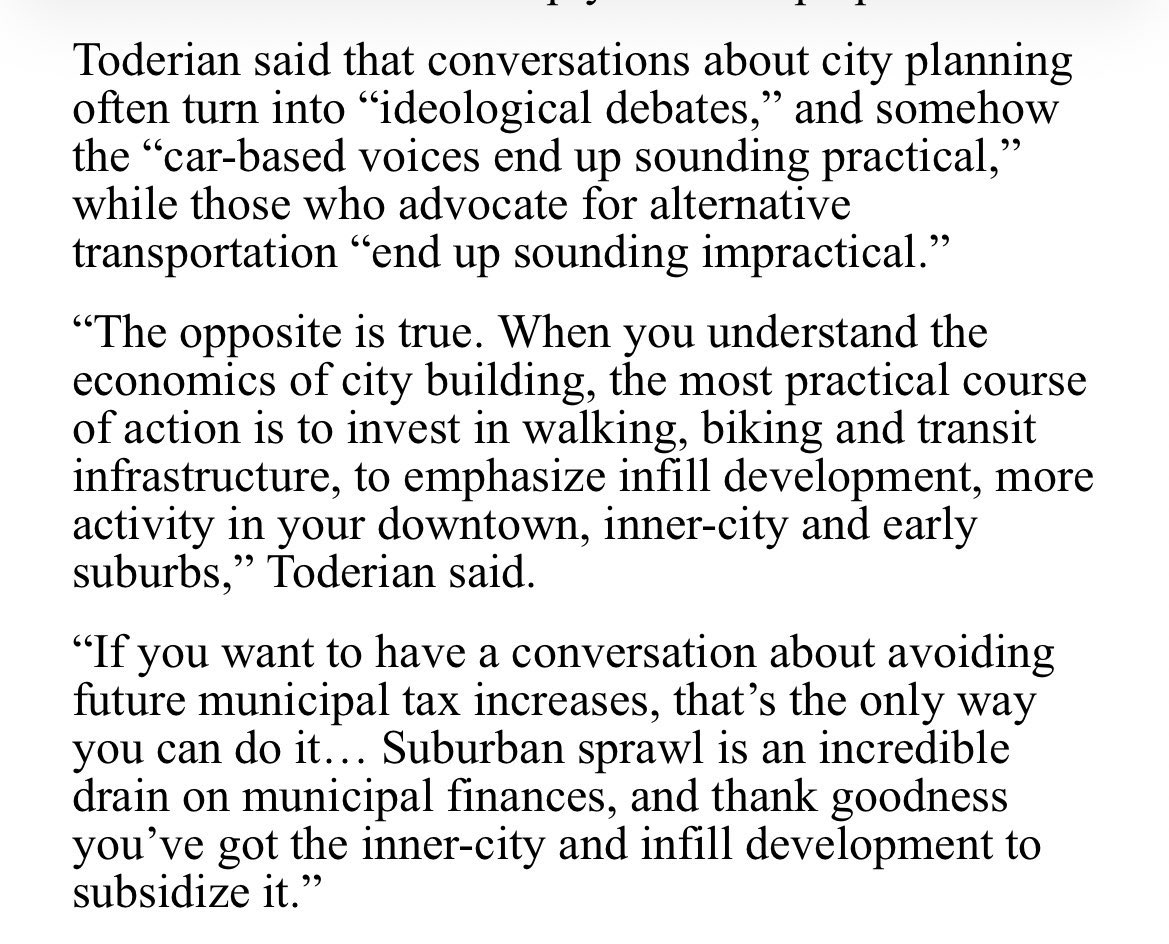The future of transportation isn’t the #Hyperloop or self-driving cars. It’s the bus, the bike, & the elevator. Via @Slate
AND it’s better land-use & infrastructure decisions, reprioritizing space & budgets, accessible streets, & smart pricing mechanisms.
slate.com/technology/201…
AND it’s better land-use & infrastructure decisions, reprioritizing space & budgets, accessible streets, & smart pricing mechanisms.
slate.com/technology/201…
Never forget, the electric car is here to save the car industry, not the planet.
“In a 2050 scenario, there’s time for everything to happen that needs to happen. But in 2030 it just isn’t going to happen. Just look at the mess we’re in from a lithium supply standpoint with less than 10% EV penetration.”
There’s not enuf battery metal.
bnnbloomberg.ca/mr-lithium-war…
There’s not enuf battery metal.
bnnbloomberg.ca/mr-lithium-war…
So I’ll repeat — we DO need to replace the current # of ICE vehicles with a LOT FEWER EVs. It’ll take a LOT of work on infrastructure, including the transformation of millions of private parking spaces. Unlike driverless cars, it IS part of the solution & needs to happen quickly. 

As I put it recently in my blunt advice to Irish cities, “Your goal SHOULDN’T be to replace a million fossil fuel vehicles with a million electric vehicles. It should be to replace a million fossil fuel vehicles with 250K electric vehicles. The answer HAS to be FEWER cars." 

The transportation portion of climate-changing emissions has grown by 54% since 1990, in part because people have been driving more and buying big pick-up trucks and SUVs. SHIFTING TO EVs IS NOT ENOUGH. Car dependency is the deeper problem. Via @parismarx
cbc.ca/news/opinion/o…
cbc.ca/news/opinion/o…
Climate policy that relies on a shift to electric cars risks entrenching existing inequities. Via @ConversationUK. Among MANY reasons to conclude that “better cars” won’t get us where we need to be. Fewer cars, less driving, more choices and better cities. theconversation.com/climate-policy…
THIS IS INTERESTING: 12 Ways to Reduce Cars In Cities that have ALREADY WORKED, ranked by effectiveness, identified from nearly 800 research papers. Via @KA_Nicholas in @ConversationEDU. What do u think, Tweeps? Depends A LOT on the specific case studies… theconversation.com/12-best-ways-t… 

“Popularising electric vehicles comes with the risk of entrenching car dependency. Driverless cars may encourage more miles on the road, which could make traffic and sprawl worse.”
Fewer cars, less driving, more choices, better cities. Via @sky #FCLDMCBC smh.com.au/business/marke…
Fewer cars, less driving, more choices, better cities. Via @sky #FCLDMCBC smh.com.au/business/marke…
Still think making all our current cars EVs is the answer? Only 5% of cars in California are currently EVs.
Fewer cars. Less driving. More choices. Better cities. #FCLDMCBC
Fewer cars. Less driving. More choices. Better cities. #FCLDMCBC

“The technologies unleashed by Silicon Valley are not neutral. They contain within them the world views of the people who develop them… they champion ideas that would ensure that automobiles continue to dominate our transportation system…“ — @parismarx in “Road to Nowhere.” 

Clearly I’m not saying EVs aren’t part of the broader solution, but the main goal HAS to be less driving & fewer cars. Picture tobacco companies selling “better cigarettes” as the solution (which can actually lead to MORE smoking), when we know the solution is to limit smoking. 



• • •
Missing some Tweet in this thread? You can try to
force a refresh





























